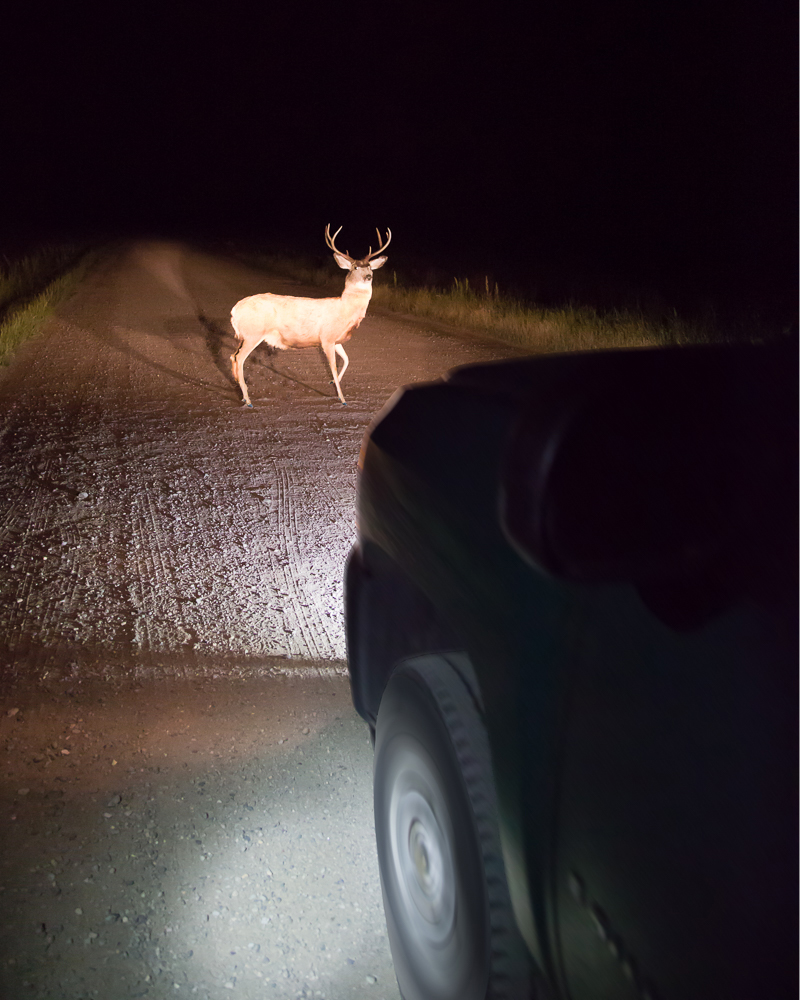
Report Date:
http://www.dfg.ca.gov/Caltrans and the California Department of Fish and Wildlife (CDFW) remind motorists to remain alert for wildlife on roadways during Watch Out for Wildlife Week, which runs September 18-24.
“Drivers can improve their own safety by simply slowing down and remaining alert while driving,” said Caltrans Director Malcolm Dougherty. “We are committed to safety while being mindful of the environment, using signage, fencing, and undercrossings to reduce wildlife-vehicle collisions along roadways, especially in wildlife corridors.”
“Between now and December, deer and other wildlife are more susceptible than usual to vehicle collisions,” said Marc Kenyon, CDFW’s Human-Wildlife Conflict Program Manager. “Soon, deer will start their annual migrations to winter range, bucks will be preoccupied competing for mates, and bears will be searching for food in preparation for hibernation. Such natural behaviors can lead these animals into the way of unsuspecting drivers. Drivers can prevent collisions with animals by being careful and paying attention.”
Wildlife experts offer the following tips for motorists:
The Watch Out for Wildlife campaign is supported by Caltrans, CDFW, Defenders of Wildlife, and the Road Ecology Center at the University of California, Davis.
Here are a few examples of what Caltrans, CDFW, and their partners are doing to reduce wildlife-vehicle collisions, improve awareness of key issues, and improve ecological sustainability:
Highway 17 Laurel Curve Wildlife Crossing, Santa Cruz County
The Laurel Curve Crossing Project is a planned undercrossing that will enhance wildlife movement to either side of Highway 17. Highway 17 over the Santa Cruz Mountains is a four-lane road that has become heavily-traveled in recent years, particularly by people who commute between the Santa Cruz and San Francisco Bay areas. The part of Highway 17 that includes Laurel Curve is in an essential connectivity area for wildlife, cutting through prime habitat. Deer, bears, mountain lions and smaller wildlife attempt to cross the highway in their normal migration and foraging patterns, creating hazards for themselves and motorists. The Laurel Curve Wildlife Crossing project is a collaboration of several local and state partners including the Santa Cruz County Land Trust, Pathways for Wildlife, the UC Santa Cruz Puma Project, Caltrans, and CDFW. Funding sources include Advance Mitigation Program funds from the 2016 State Highway Operation and Protection Program.
Highway 89, Sierra County
On a stretch of Highway 89 between Truckee and Sierraville, a recently-completed $2.08 million project consists of two new 12-foot by 10-foot wildlife undercrossings, providing a safe path for animals to cross under the roadway. The project also includes four escape ramps and over 14,000 linear feet of deer fencing on both sides of the highway to help prevent wildlife-vehicle collisions.
Highway 246, Santa Barbara County
Six new highway undercrossings have been designed for California tiger salamanders and small animals to pass safely between breeding ponds and upland habitat on the opposite sides of Highway 246 between Buellton and Lompoc. This species is protected under both the state and federal Endangered Species Acts. In addition to the design and implementation of these six undercrossings, Caltrans has proposed a five-year monitoring study to assess the undercrossings’ effects on California tiger salamanders and other animals crossing the highway. The project is in the final stages and is expected to be completed this fall.
Report Date:
(This column originally ran on Sept. 17, 2015.) Question: Is there anything I can do to deter or discourage sea lions from......
Report Date:
The California Department of Fish and Wildlife’s (CDFW) Shared Habitat Alliance for Recreational Enhancement (SHARE) program will provide public access......